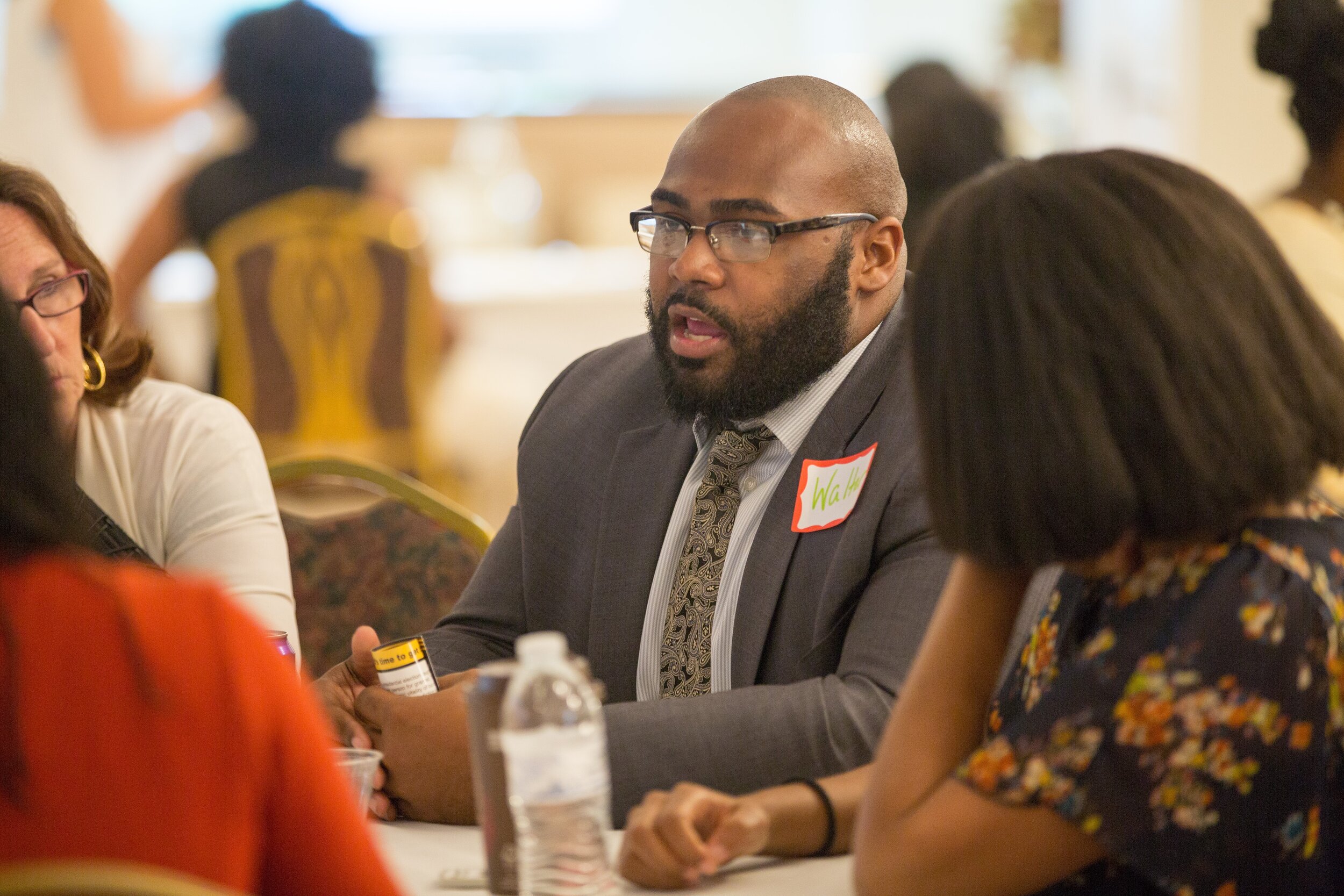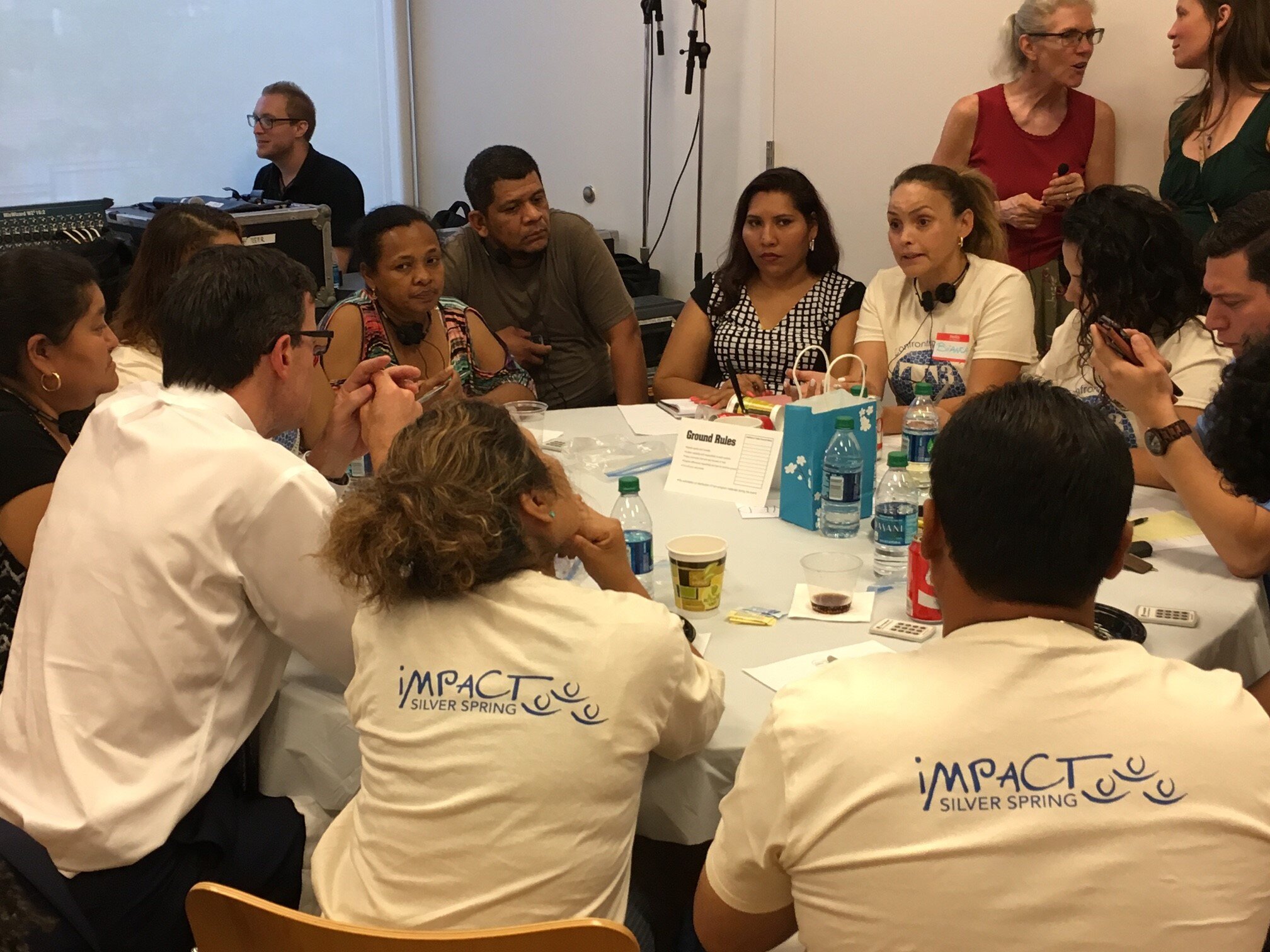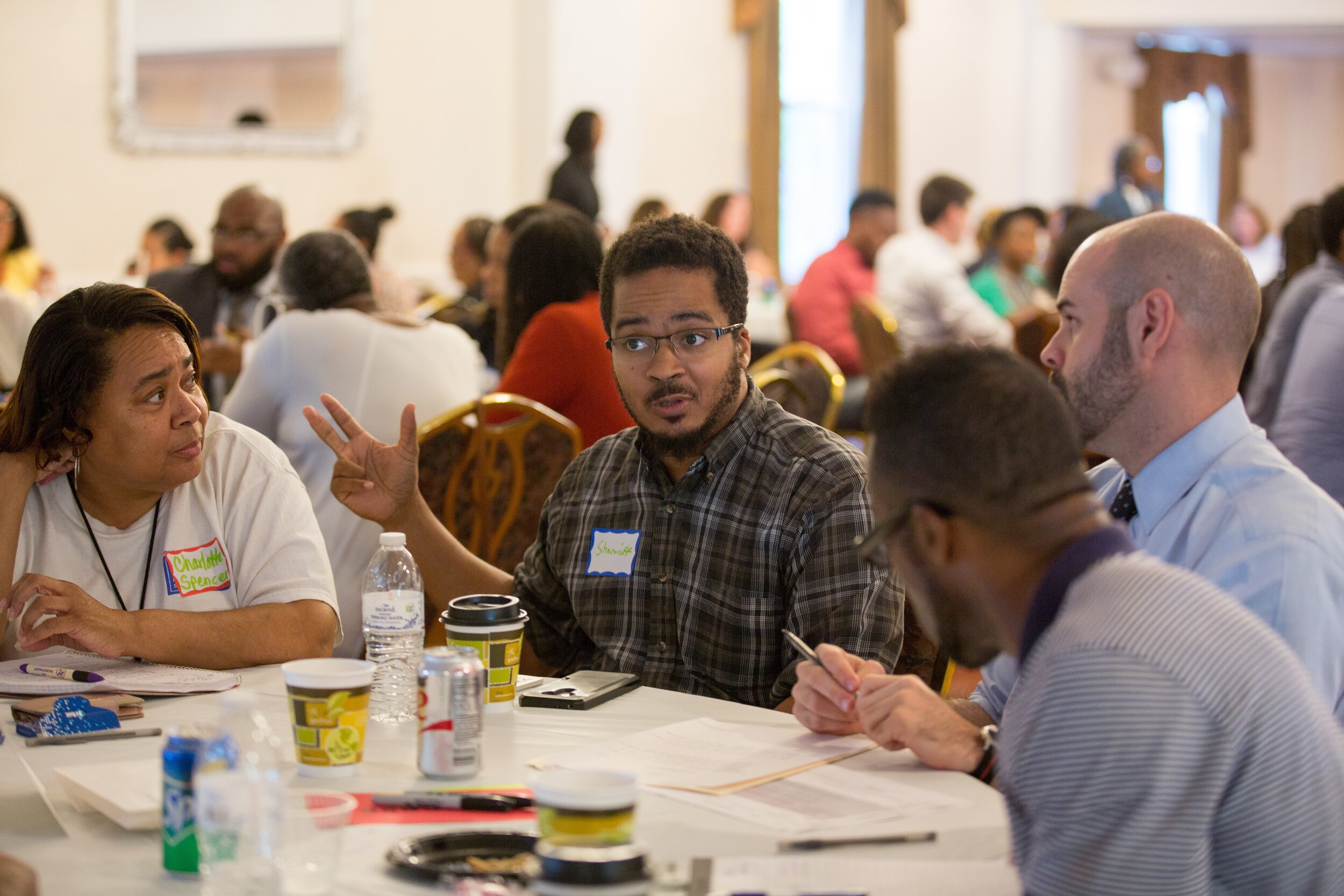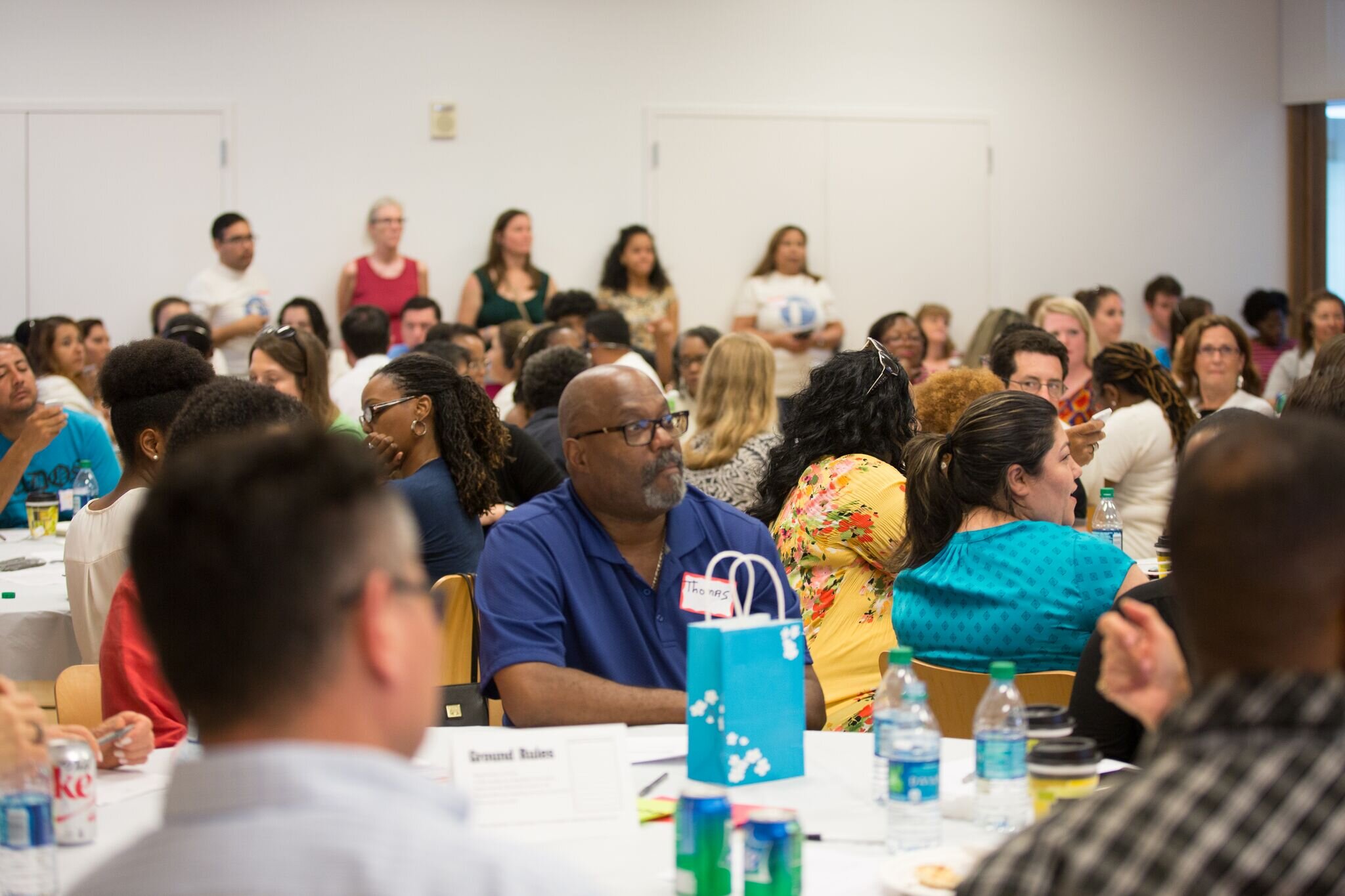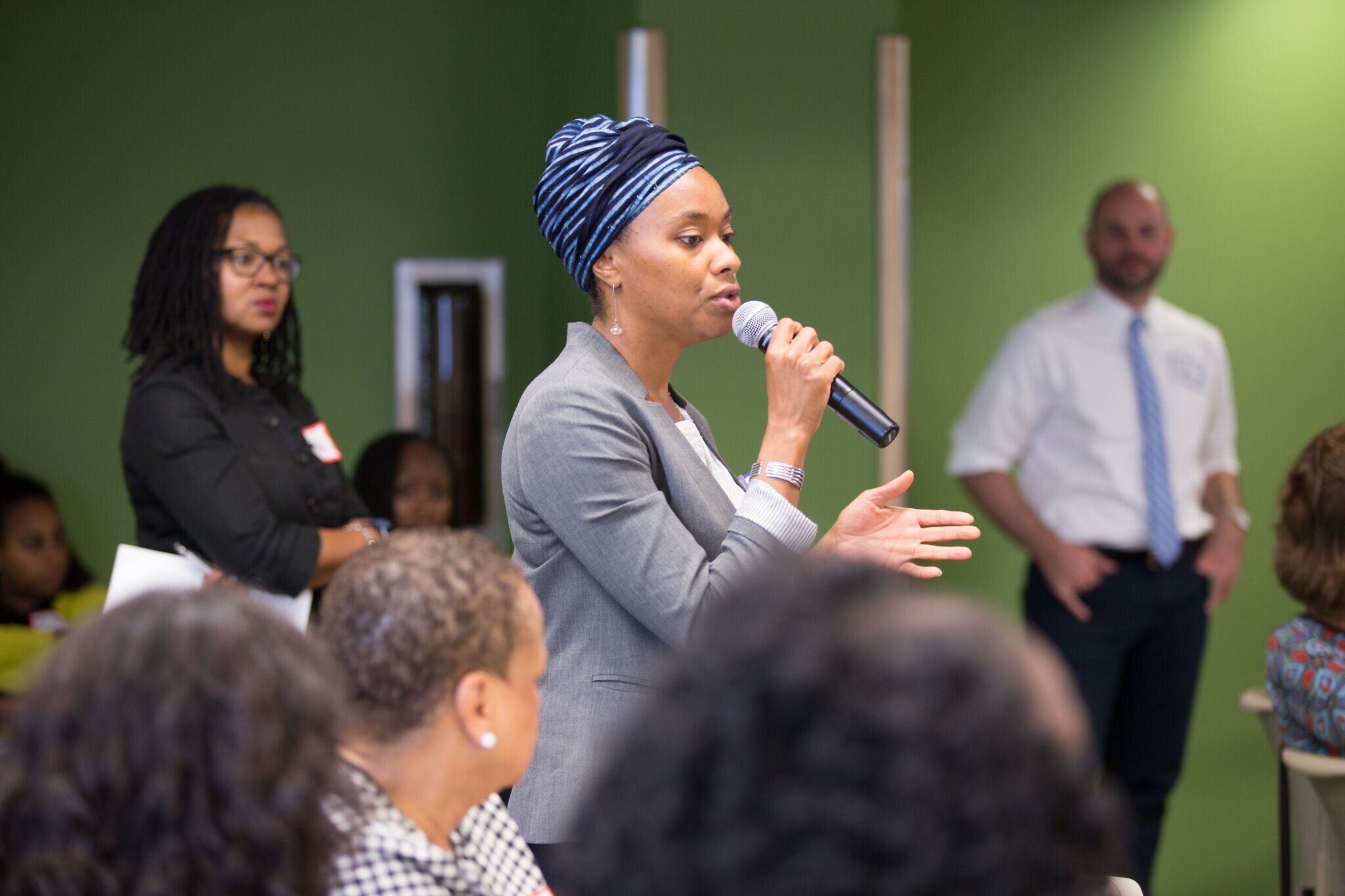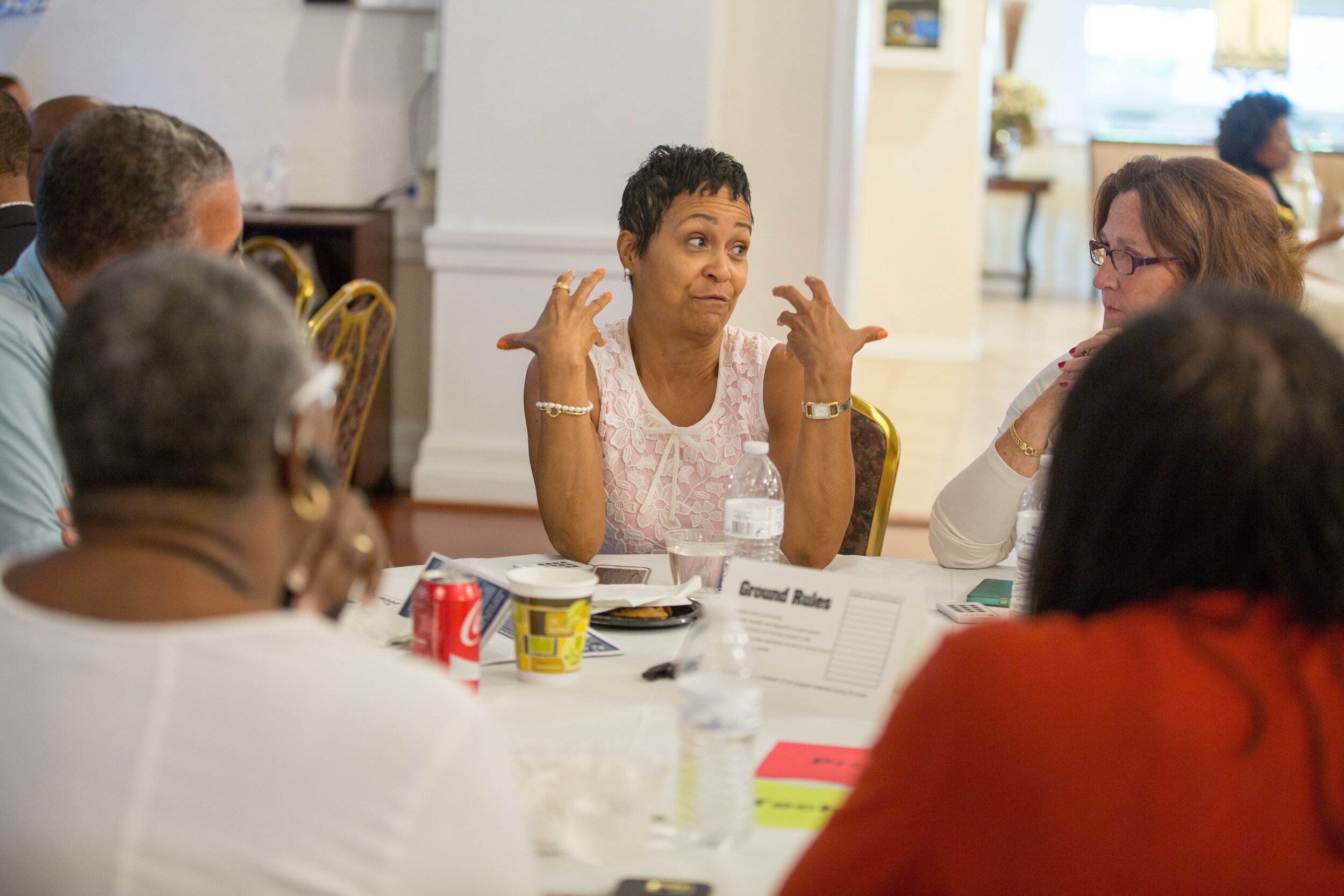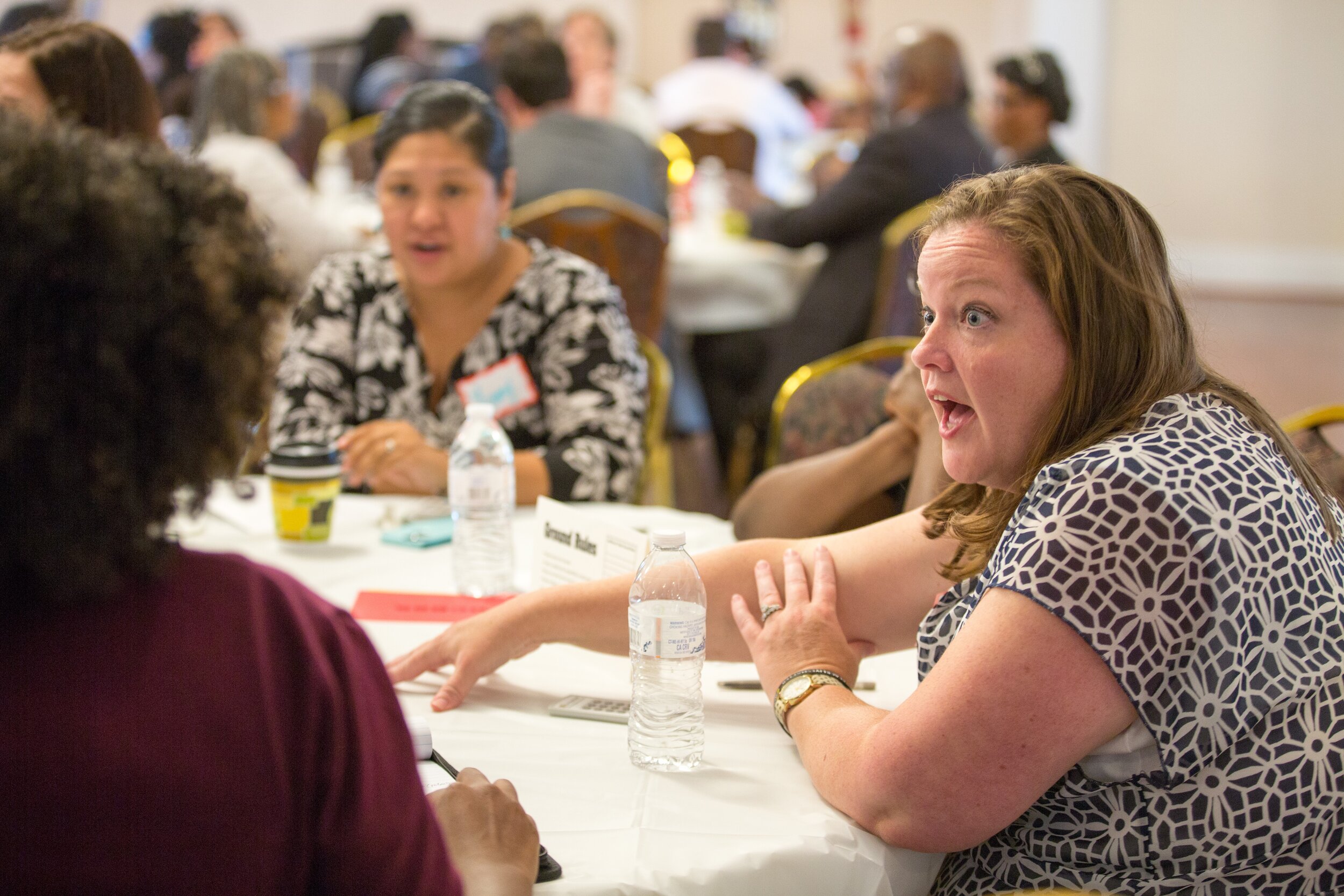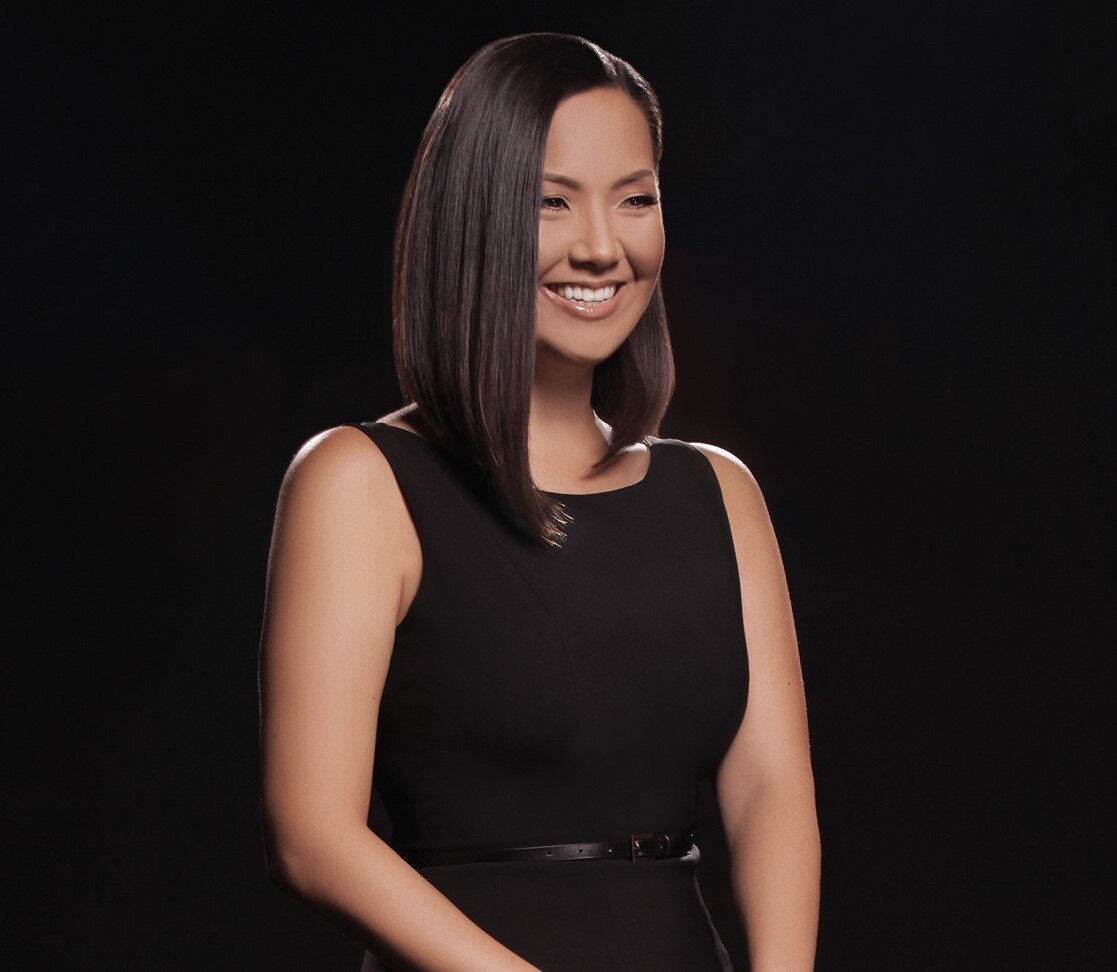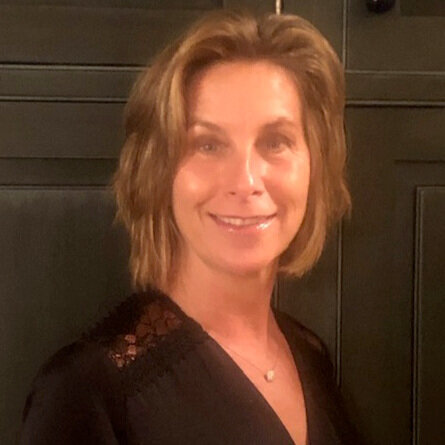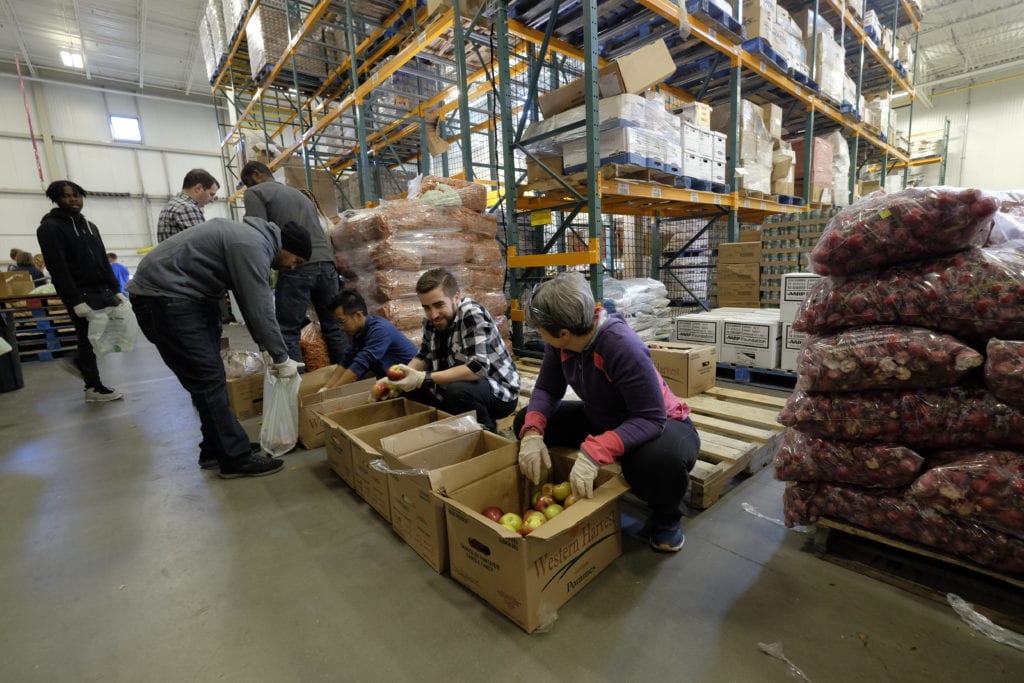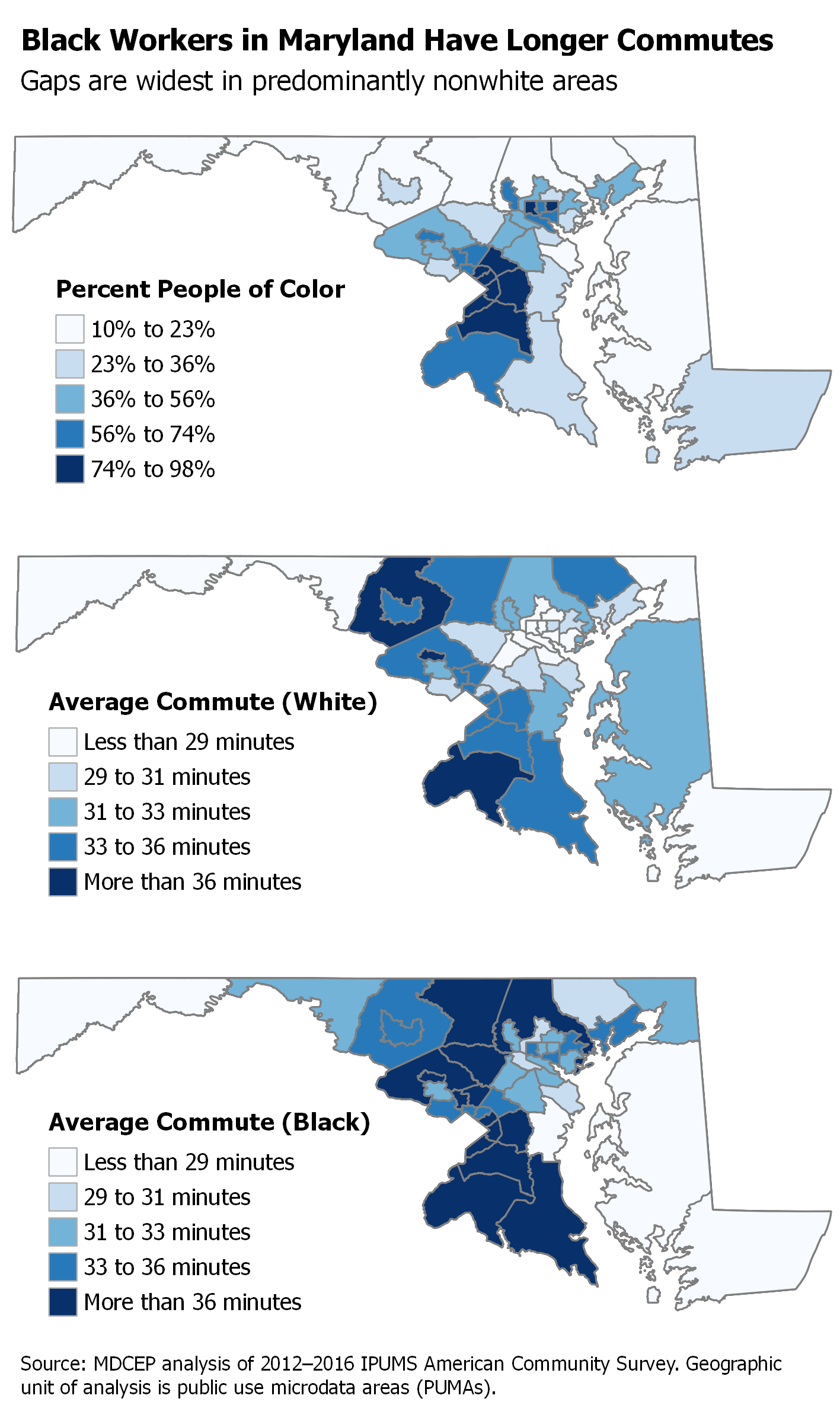By Brittany Owens, Community Investment and Donor Services Associate
Our annual Celebration of Philanthropy pays tribute to the individuals and organizations that dedicate their time and resources to make our region a more vibrant, equitable, and inclusive place to live. Even our pop-performances – live music, theater, poetry, and dance – come from nonprofits and local artists who are supported by The Community Foundation and our community of givers. We are so excited to announce the individuals and organizations who will entertain you at our Celebration on Thursday, March 12, 2020. To get your tickets to the Celebration, please visit www.thecommunityfoundation.org/celebration.
The Asylum Seeker Assistance Project (ASAP) was founded in 2016 to strengthen and support asylum seekers to rebuild their lives with dignity and purpose. ASAP utilizes a holistic approach that combines social, employment, and community engagement services to support their clients achieve safety, stability, and economic security. A component of ASAP’s community engagement services program focuses on storytelling to communicate the value and importance of welcoming refugees. ASAP’s performance will feature a selection of storytellers that will share personal excerpts from their lives to offer listeners a greater insight into the asylum seeker experience.
Alliance for New Music-Theatre develops and produces works across the spectrum of music-theatre on subjects and issues that matter in our community, changing the conversation through the arts. The Musicianship Washington Youth Chorus joins the Alliance for New Music-Theatre to celebrate the 150th Anniversary of Dunbar High School, the first African American high school in our nation. To mark the occasion, this performance will feature Greg Watkins — a distinguished performer, composer and music director — and the Washington Youth Chorus singing several pieces from Steven M. Allen’s opera based on the life of poet Paul Laurence Dunbar.
CREATE Arts Center’s mission is to spark creativity, foster learning, empower individuals, and facilitate community connections through the visual arts. CREATE builds community partnerships that bridge cultural, economic, and social barriers. The programs at CREATE consist of arts education and art therapy. At the celebration, CREATE will host an interactive mural design to engage guests and illustrate a collective story of those who participate. Participants will choose from dozens of mixed media elements to express their own narrative that will be presented in an eclectic form of artistic expression and artwork.
DC Jazz Festival (DCJF) provides enriching and entertaining performances that introduce students from various walks of life to jazz. DCJF nourishes the community with free educational programs that extend their reach into underserved neighborhoods and enhance the quality of life for DC public and charter school students. Its signature programs include the DC JazzFest program showcasing emerging and established artists, while the DCJazzPrix is a national jazz band competition. DC Jazz Festival’s performance will feature several music selections from Teaching Artist Herman Burney, a mix of professional musicians, and students from the Jazzin’ Afterschool Youth Ensemble program at Sitar Arts Center.
Girls Rock! DC is an arts and justice organization that is a supportive, inclusive, and creative space for girls, non-binary, and other trans and gender expansive youth. The program focuses on building self-confidence and community to rise up and rock out. The youth in this program vary in race, ethnicity, religion, socioeconomic backgrounds, abilities, and identities. Girls Rock! DC will be hosting an “instrument petting zoo” for guests to learn about, try out, and appreciate music in an interactive, judgement-free, fun space. We'll have a variety of instruments on display and teaching artists will lead one-on-one demonstrations and lessons.
Guided by the founding principle that “Dance is for Everyone”, Joy of Motion’s mission is to cultivate a diverse community of dance students, educators, artists, and audiences in the DC metropolitan area. Joy of Motion accomplishes this by providing exceptional dance education and performances that open doors for learners of all ages and abilities. This mission supports our vision of making dance a celebrated component of life-long learning, well-being, and a thriving society. Joy of Motion’s performance will showcase “Rage Mode”, a high-energy Hip-Hop piece performed by the Rhymthmx Youth Performance company comprised of 8 company members ages 8-11 years old.
The Washington Ballet (TWB) is internationally recognized for its excellence in classical and contemporary ballet repertory. TWB has a three-part mission: to bring the joy and artistry of dance to the nation's capital and the world's stage through the professional presentation of the best in classic and contemporary ballet; provide the highest caliber of dance training through The Washington School of Ballet (TWSB); and serve and involve the entire community through extensive dance education and community engagement programs. The Washington Ballet’s performance of Ballet Hispano was choreographed by Helga Paris Morales, a native of Puerto Rico, and will consist of a three-part ballet that showcases different styles of Latin American dance with classical ballet technique.










